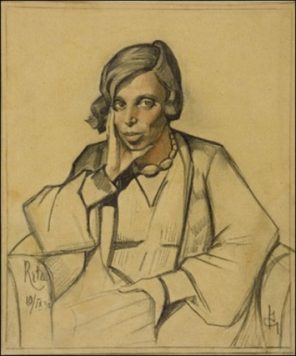
Last week, I was cleaning out my bookshelves. And I decided to throw away all my orthodontic textbooks in Russian.
Yes, I mean it. I have no intention to sell them or present them to younger colleagues. I was misled by these books and I don’t want anyone to be misled by them. I bought them during my residency in Moscow that I finished three years ago.
At my first year after graduation, I completely switched to English language literature. It was a vital necessity. I will either damage all my patients or will learn how to do orthodontics correctly, said I to myself. It turned out that most orthodontic textbooks that I used to read were either poorly translated or significantly outdated.
Here I should notice that I am a big fan of the classic Russian translations of fiction. I feel special respect for Rita Rait-Kovaleva who during the Soviet Era had translated into Russian a wide range of modern western classics – from Kafka to Faulkner. I have spent my teenage years enjoying her work. But it seems like there is no joy about orthodontic translations…
What is wrong?
Since the specialty of orthodontics was first established in the United States, most of textbooks and reputable peer-reviewed journals are published in English. Studying orthodontics in other languages might become confusing because of the following issues:
- Terminology
- Limits of data
- Conflicts of interest
I am not sure, if it is possible to evaluate the best language for orthodontics scientifically. But my personal experience tells me that English looks like the most suitable one.
Last spring, I recorded several interviews with several well-known American orthodontists and put it to my YouTube channel. The first day I came back from the US, I was summoned by my boss in a state dental clinic where I worked. “I forbid you to film anything anymore”, – he told me. Frankly, I was not surprised. I had read all the Kafka’s books long ago. Some months later, when it became known that I want to produce a full documentary, I got fired. Technically, I was fired because “I was the only orthodontist in the clinic who did not provide lower Schwartz expanders to patients”. Well, there is plenty of evidence to suggest we should not expand the lower jaw. But let’s assume that all of the above was also about a language barrier.

Why I do translations myself?
I regularly translate into Russian a popular orthodontic blog by a British professor Kevin O’Brien. You might wonder, why I am doing this, if I am so skeptical about orthodontic translations?
First, I really like his sense of humor. But speaking seriously, my main goal is to encourage my colleagues to pay attention to research papers. I know that many Russian-speaking folks have difficulties with English (myself included), so for many it would be easier to start with translated posts. But I hope that my translations will encourage some orthodontists to study better English and to go further. And perhaps, in the not too distant future we will see a trial in a reputable journal done by a team from the former Soviet Union.
I really have hope for a young generation. For those who are ready to separate themselves from the “post-Soviet Orthodontiya” – a strange mix of communist bureaucracy and marketing obsession – and to join the evidence-based orthodontics movement. In my opinion, a first step in this direction is to improve one’s English…
I would be glad to continue discussion on this in the comments…

[…] years ago, I started my blog with a question ‘Can we study orthodontics in a foreign language?’ I came to a negative […]
LikeLike
[…] years ago, I started my blog with a question ‘Can we study orthodontics in a foreign language?’ I came to a […]
LikeLike
[…] on this blog about the situation with orthodontics in the former Soviet Union. Three years ago, I defined the post-Soviet orthodontiya as a mix of Soviet bureaucracy with marketing obsession. I can’t […]
LikeLike
[…] Moscow, I spent a lot of thinking trying to grasp post-Soviet orthodontiya. I once describe it as “a strange mix of communist bureaucracy and marketing obsession”, then as “an amusing quackery”, next as “a thing one won’t be able to understand”. Now I […]
LikeLike
[…] However, I can’t help feeling that my mother tongue is not suited well for orthodontic purposes. I wrote about this issue three years ago and am going to return to it now. At the moment, I am having a long railroad trip across Russia. So […]
LikeLike